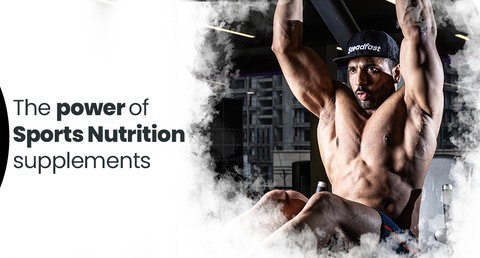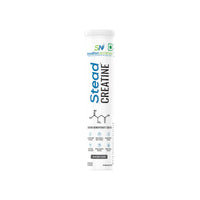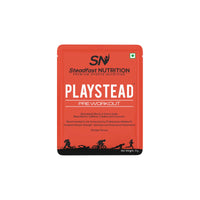Good nutrition is necessary for athletes’ general health and maximising their performance. In today’s era, sports nutrition supplements have become a necessity rather than a choice. Supplements are extremely important because they make it much easier to obtain the nutrients needed to build muscle and give you an edge in your training when used in combination with a healthy diet. When consumed at the right time and in the right quantity, nutritional supplements help increase overall performance and health by accelerating the growth and recovery process of the body. They aid in preventing nutritional deficiencies, muscle loss, and improve stamina and performance.
Pre-Workout Supplements
Pre-workout supplements must focus on providing the body with a supply of carbohydrates and electrolytes as they help in maximising glycogen stores, keep the body hydrated, and help it to compensate for the minerals lost through sweating after an intensive workout. Carbohydrates are the most essential energy source for ATP synthesis, which contribute to long-term high-intensity endurance training.
These supplements also help athletes to workout for a longer duration.
Apart from carbohydrates and electrolytes, pre-workout supplements containing ingredients such as beta-alanine, branched chain amino Acids (BCAAs), creatine, and caffeine have also been shown to boost energy and athletic performance.
According to a 2014 study, when taken for a longer period, pre-workout supplementation containing these ingredients can lead to favourable changes in body strength and composition.
In another study, caffeine may have contributed to enhancing mental alertness, memory and aerobic performance. As per the findings of another study, caffeine might enhance performance in endurance-type activities, intermittent and long duration activities when taken before an event. Beta-alanine is one of the essential amino-acids that is synthesised in the liver, but its availability through supplements is more, and it actually improves performance of athletes, reduces fatigue and prevents acid buildup in the muscle tissue. BCAAs (Branched chain amino acids) added in carbohydrate supplements increase lean muscle mass, muscle growth and prevent muscle soreness. Creatine is a compound naturally produced in the body and plays role in energy production and muscle strength. Supplementation can improve recovery time, strength and muscle mass. Buy pre workout.
Electrolytes
Electrolytes are essential minerals- calcium, sodium, magnesium, potassium and chloride- which regulate nerve function, hydrate body and help rebuild damaged tissues. A low level of electrolytes in the body is associated with symptoms such as muscle weakness and muscle cramps. These are common among physically active individuals. Due to this, it is recommended to athletes that they should not be dehydrated and balance of electrolytes should be maintained before the workout so that during workout athlete should not suffer any muscle cramps.
Recovery After Exercise
Recovery from training is becoming recognised as one of the most important aspects of physical activity and overall wellness. Protein supplements are widely consumed by active people and athletes to achieve muscle mass, strength and improve performance. Nutrient timing is a popular nutritional technique that refers to the timing of consuming nutrients entails consuming a combination of nutrients—mostly protein and carbohydrate—before, during and after a workout. The period after an exercise is considered the most critical part of nutrient timing since there is limited time to replenish nutrients such as amino acids for muscle formation. Protein and amino acid-based supplements are best taken at this time.
Proteins
Protein in a post-workout recovery meals may also help with net protein anabolism. Since muscle protein is degraded during exercise, the addition of a large amount of protein for athletes after exercise is necessary to help rebuild the structural aspects of the muscles. After exercise, the body decreases its rate of protein synthesis and increases its rate of protein breakdown. That is why RDA for sports persons has been suggested as 1g/kg/day to 1.5g/kg/day, compared to healthy individuals which is 0.8g/kg/day.
According to a Study conducted by Stark (2012), sportspersons use a variety of dairy and soy-based proteins to increase muscle mass and strength. Low-protein supplementation delays the resolution of inflammation after muscle-damaging exercise.
Among the dairy proteins, several research studies indicate that whey protein is superior to both casein and bovine milk as it contains all essential amino acids and has a high bioavailability, which allows quick protein synthesis. Supplementation with whey increases muscle strength and muscle formation. Buy Whey Protein.
On the other hand, soy- a plant based protein- can be consumed by vegetarians and those who are lactose or casein intolerant. It’s not as bioavailable as whey but still contains essential amino acids.
References—
- www.ncbi.nlm.nih.gov/PMC3529694
- www.ncbi.nlm.nih.gov/PMC3577439
- www.ncbi.nlm.nih.gov/PMC1150229
- www.ncbi.nlm.nih.gov//PMC4190923
- jissn.biomedcentral.com//10.1186/1550
- ods.od.nih.gov/ExerciseAndAthletic
- pubmed.ncbi.nlm.nih.gov/28615996
- pubmed.ncbi.nlm.nih.gov/28934166




